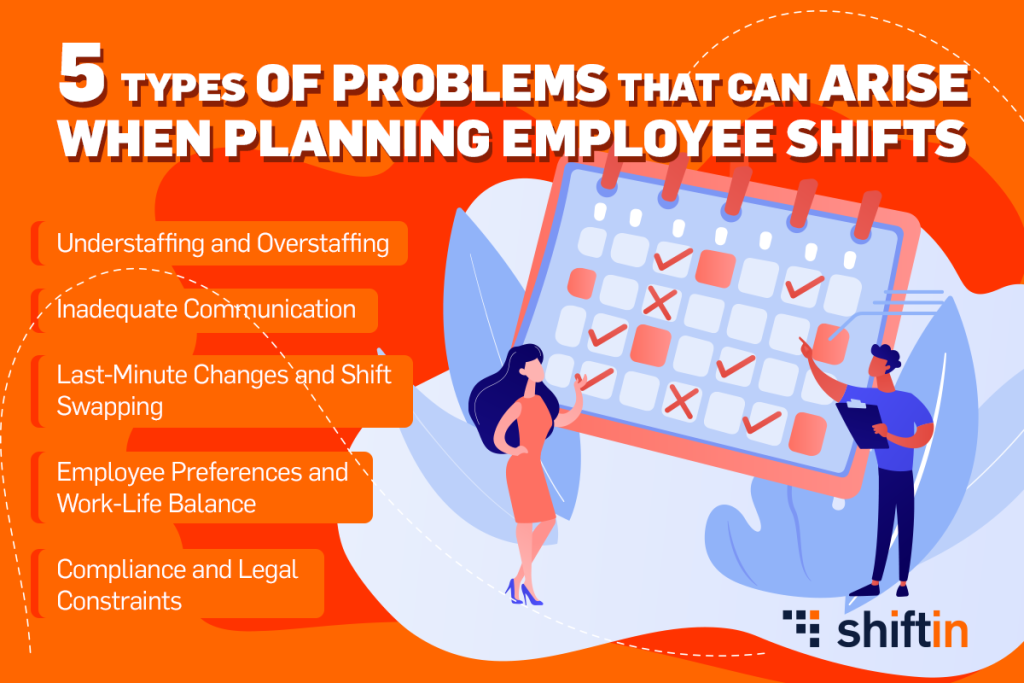Efficient work shift scheduling and adept shift management are pivotal elements in the smooth operation of any organization. However, amidst the intricacies of workforce dynamics and operational demands, numerous challenges often arise. Here are five prevalent problems encountered when planning employee shifts, highlighting the significance of adept shift management solutions.
Understaffing and Overstaffing
One of the primary dilemmas in work shift scheduling is finding the equilibrium between understaffing and overstaffing. Understaffing leads to increased stress among employees, decreased productivity, and compromised service quality. Conversely, overstaffing results in unnecessary labor costs and reduced employee engagement due to fewer work hours. Shift managers must strike a delicate balance, leveraging historical data and predictive analytics to forecast demand accurately.
Inadequate Communication
Poor communication channels can disrupt shift management significantly. Employees may face challenges accessing their schedules, resulting in confusion or missed shifts. This lack of clarity can erode trust between management and staff, leading to dissatisfaction and decreased morale. Employing user-friendly scheduling tools and establishing clear communication protocols can mitigate this issue.
Last-Minute Changes and Shift Swapping
Unforeseen circumstances often prompt last-minute changes to shift schedules. Emergencies, sudden employee absences, or unforeseen demands can disrupt the planned roster. Additionally, facilitating shift swaps between employees might lead to complications if not managed properly, impacting productivity and causing scheduling conflicts. Implementing robust protocols and utilizing technology-driven platforms for shift swapping can streamline this process.
Employee Preferences and Work-Life Balance
Balancing employee preferences while ensuring operational efficiency poses a significant challenge. Employees may request specific shifts or days off, impacting the scheduling puzzle. Failure to accommodate these preferences can lead to dissatisfaction and reduced morale among the workforce. To address this, shift managers can incorporate flexible scheduling policies, allowing employees to indicate their preferences while considering the overall organizational needs.

Compliance and Legal Constraints
Adhering to labor laws, union agreements, and regulatory requirements adds complexity to shift management. Violations of labor regulations regarding overtime, breaks, or maximum working hours can lead to legal repercussions and financial liabilities. Shift managers must remain updated on labor laws, implement compliant scheduling practices, and leverage automated systems to monitor and ensure adherence to these regulations.
Effective work shift scheduling and management is a multifaceted task that demands meticulous attention to various challenges. Leveraging technology, clear communication, data-driven insights, and a collaborative approach between management and employees are key strategies to mitigate these problems. By addressing these issues proactively, organizations can optimize their workforce management processes, fostering productivity, employee satisfaction, and operational excellence.
Are you ready to schedule your program in effortless shifts? Try Shiftin today and experience the power of intuitive scheduling tools, real-time updates and simplified shift management.





